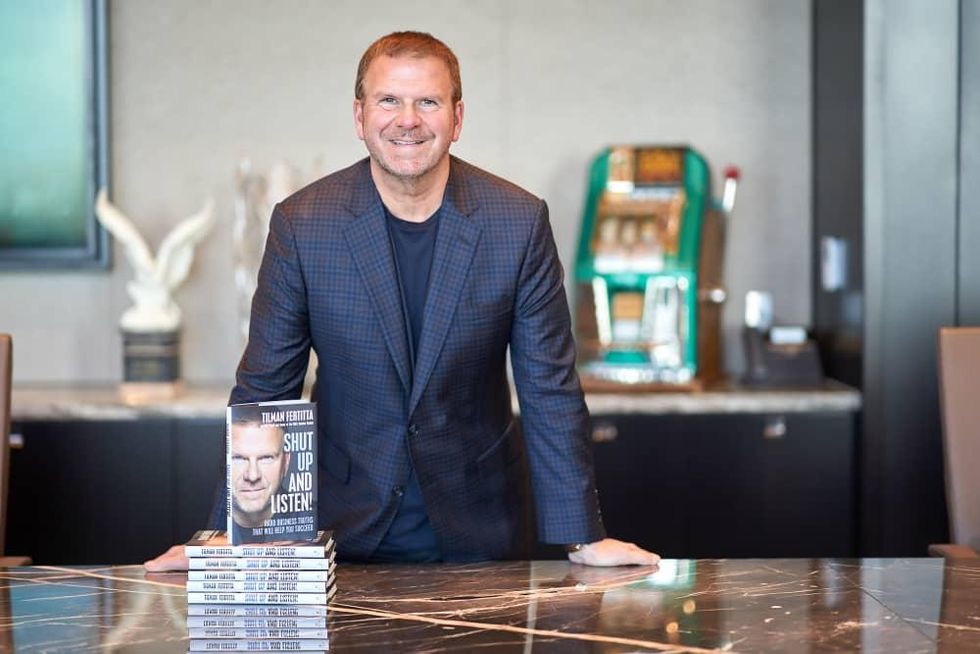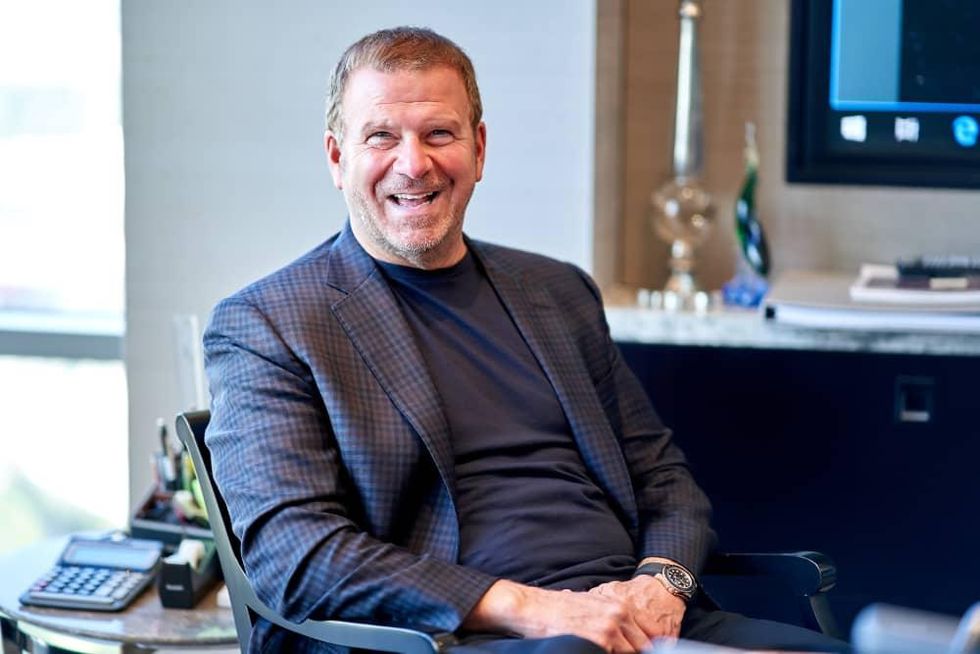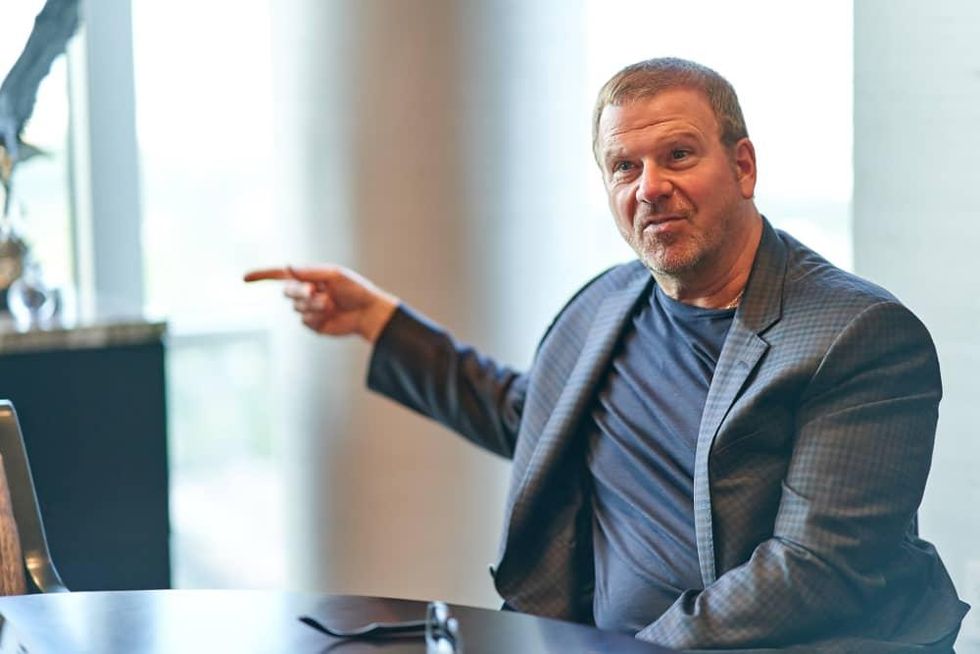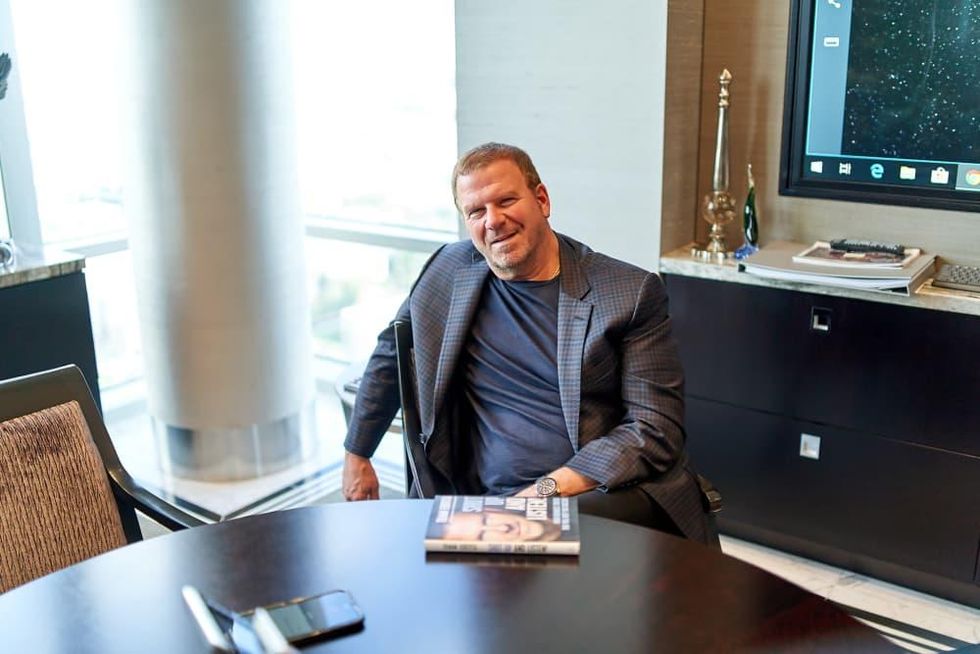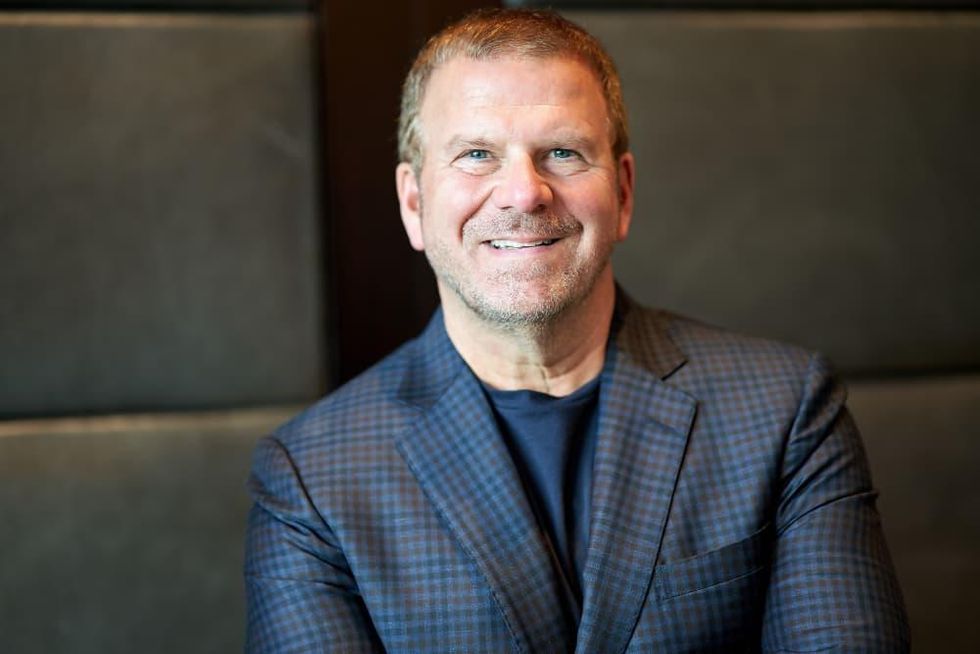10 questions for tilman fertitta
Houston billionaire Tilman Fertitta wants you to shut up and listen with new book
Tilman Fertitta can’t lose. Sitting in his palatial office nestled in the towering Post Oak Hotel in Uptown, the sole owner of Fertitta Entertainment, the restaurant giant Landry’s, the Golden Nugget Casinos and Hotels, and the NBA’s Houston Rockets — not to mention the star of the TV reality show Billion Dollar Buyer — is taking a quick moment to bask in his success.
And why not? On top of being the world’s richest restauranteur and Houston’s most recognizable billionaire, Fertitta currently boasts a best seller with his new business book, Shut Up and Listen! As CultureMap reported, he just acquired Del Frisco’s luxury steakhouse chain, adding to his impressive and extensive restaurant empire. And speaking of acquisitions: Soon, his Houston Rockets will unleash the powerhouse duo of James Harden and new teammate Russell Westbrook, who came to Houston in a massive trade with Oklahoma City.
Fertitta has just made the national media rounds promoting Shut Up and Listen! and looked quite comfortable doing so. “A lot of owners don’t talk to the media and they don’t know how to do it,” he tells CultureMap, “but I’ve been doing it for 30 years and it just doesn’t phase me.”
Shut Up and Listen! is a Tilman tell-all. But rather than a life story, the book is a how-to for the business-minded. No-nonsense nuggets such as the “Tilmanisms” teach principles such as the 95/5 rule (focus on the 5 percent of the operation that isn’t perfect and fix it) and offer hardcore reminders such as “when things are bad, eat the weak and grow your business.” Doubters, take note: Shut Up has landed on the Publishers Weekly's and USA Today's Best Sellers lists.
CultureMap sat down with Fertitta during a rare break to talk books, business, and his beloved Bayou City.
CultureMap: You’re a Texan titan of industry, a major local benefactor, you own one of the most buzzworthy teams in all of pro sports, and you’re the star of your own reality TV show. Can we now say — in Houston — that you’re way bigger than Mark Cuban?
Tilman Fertitta: [Laughs] Oh, I don’t know about that. Mark is a special guy and we’re lucky to have him in Texas.
CM: You’ve been actively involved with the Rockets and the University of Houston sports programs. Using your 95/5 rule, can you share any of the 5 percent of what you found wrong with the Rockets and UH?
TF: At UH, the 5 percent was we wanted to have good coaches and we wanted to improve our facilities. That’s the 5 percent we realized that if we wanted to compete at the highest level of basketball and football, that’s what we’d have to do.
For the Rockets, we’re gonna make sure we can put the basketball team we can on the court with the best coaches every single year. I’m not a sit-on-my-hands guy — it’s let’s keep getting better.
CM: Why is giving back to your hometown important to you?
TF: This is where I grew up and Houston’s been very good to me. I’ve been around a long time and I’ve watched people come and go in the ’80s, the ’90s, the 2000s, and the 2010s. It’s fun to have lasted this long and been a player through so many decades.
CM: There’s an old adage that says, ‘Do one thing and do it well.’ But you’re doing a lot of things well. When do you know, as a business owner, to diversify?
TF: Systems and operations are very important. Everybody wants to do more deals. If you understand the Big Box Theory, you make more out of a bigger box. In the beginning, I knew I always wanted to be successful. Today, I know what I know and I know — and what I don’t know.
CM: Are there some industries outside your wheelhouse that are on your radar?
TF: I’ve never done egotistical businesses; I’ve always had to make the numbers work — because I never use anyone else’s money. A lot of times, people who do egotistical businesses are using somebody else’s money.
The only egotistical business I’ve done is probably the Post Oak Hotel here. But I did it because I got tired of people saying, ‘Houston doesn’t have an unbelievable hotel.’ It’s truly one of the finest hotels in the country.
CM: How important is it to find a mentor for success?
TF: I never had that one mentor. I looked at a lot of different people and said, ‘Gosh, I like what they’re doing.’ I remember seeing George Mitchell and what he was doing in Galveston and The Woodlands. I would watch different people doing different things, but I never had that one mentor. I studied a lot of different people.
I’ll never win an Emmy or a Grammy, but to me, if you can get on the Forbes 400, that’s very special, because that’s how you’re measured.
CM: You’ve got this new book out that will hopefully inspire a generation of entrepreneurs. Are there any books that inspired you?
TF: Outliers inspired me. I do believe that different people are blessed with different abilities and you’ve got to find the ability that God gave you and seize on it.
I thought that I would always write a life story book, but Harper Collins approached me and said they wanted a business management book. I can’t tell you how many times we sat around with my close group and edited this book at the end and went through it five times and read it. If we found a paragraph that was boring, we got rid of it or rewrote it.
CM: What about people who may never be an entrepreneur or owner — how can they become more successful with your book?
TF: Whether you’re trying to go up the corporate ladder or you want to be an entrepreneur, it just tells you that you can separate yourself from anybody else. And it’s easy to separate yourself from anybody else — I was never the smartest guy in the room or the best student. But the people who want to be successful are successful.
CM: There’s a Tilmanism that teaches hiring people who are stronger than you. What are some key traits of a real leader?
TF: Anybody is a good leader in great times. First off, it’s somebody who everybody in the room respects. And it somebody who knows what they know and what they don’t know. Work is battle and being successful is a battle, and everybody wants to go into battle with a strong leader.
I can tell you this: You could talk to everybody who works for me and they’d tell you, ‘He’s a really hard person to work for, but I wouldn’t want to work for anybody else.’
CM: With your travel schedule and empire, do you ever feel that you have more in common with a president of a country than a CEO?
TF: You know, it’s funny, I told [Bill] Clinton once, ‘I’m gonna still have these jets and helicopters when you’re trying to hitch a ride.’ I’m a very political person — on both sides — because I’m in business and I never know who’s gonna be in power.
I would have no fear of being president tomorrow because it’s about making hard decisions. I think a lot of presidents have never been in business and they don’t even know how to make decisions. I make a tough decision every single day.
But, you know, I’m probably too honest to be a politician — I like to tell the truth. And I don’t want to be beholden to anybody.
